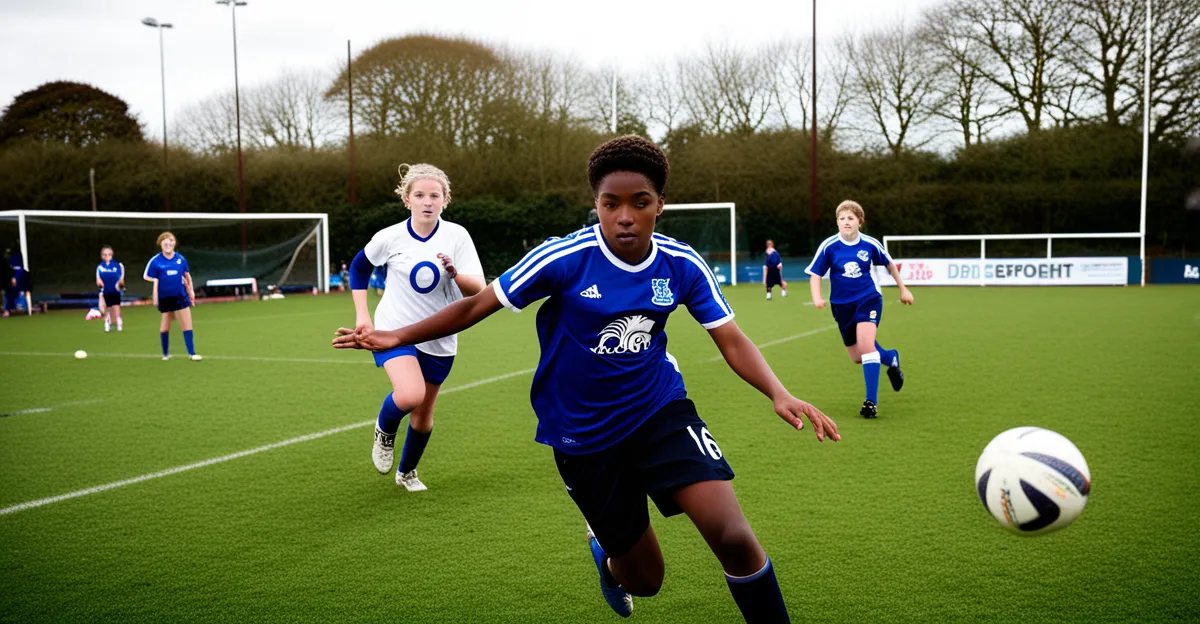Immediate Impacts of UK Sports Programs on Youth Development
UK youth sports programs deliver substantial youth development benefits that influence multiple areas of a child’s growth. One of the most direct effects is the enhancement of physical health and well-being. Participating regularly in sports strengthens cardiovascular fitness, builds muscular strength, and improves overall stamina. Such physical improvements are not only crucial for immediate health but also establish lifelong habits that reduce risks of obesity and chronic illness.
Beyond physical gains, these programs notably promote teamwork and collaboration skills. Young participants learn how to communicate effectively, share responsibilities, and achieve common goals within a team setting. These social skills extend beyond the sports field, preparing children to work cohesively in school and later professional environments. The impact on children in this respect manifests as better peer relationships and higher social competence.
Discipline and time management are other critical benefits nurtured by UK youth sports programs. Consistent training schedules encourage setting priorities and maintaining commitment. Young athletes develop the ability to balance multiple demands, such as school, sports, and leisure, fostering strong organisational skills early on. This discipline often translates into improved focus and work ethic in academic and personal endeavors.
In summary, the immediate effects of UK youth sports programs clearly target essential aspects of child development, encompassing physical fitness, social interaction, and personal responsibility. These foundational benefits create a comprehensive platform for healthier, more capable, and better-rounded young individuals.
Social and Emotional Growth Through Sports Participation
Sports participation profoundly supports social inclusion by bringing together young people from diverse backgrounds in a shared activity. This environment nurtures a sense of belonging, reducing feelings of isolation and marginalisation among youth. Evidence shows that children involved in sports are less likely to engage in antisocial behaviour, as the structure and camaraderie foster positive peer interactions.
A key youth development benefit of UK youth sports programs is the building of self-esteem and youth confidence. As children develop skills and achieve goals within a cooperative setting, their belief in their abilities strengthens. This confidence not only enhances their willingness to take on new challenges in sports but also boosts performance in academic and social arenas.
Moreover, sports cultivate essential life skills such as emotional resilience and effective coping mechanisms. Young participants learn to manage wins and losses, handle pressure, and overcome setbacks with perseverance. These experiences improve their overall emotional wellbeing, equipping them with tools to navigate complex emotions and stressful situations beyond the sports field.
In sum, UK youth sports programs play a vital role in promoting the social and emotional growth of children. Through fostering inclusion, building confidence, and enhancing emotional strength, these programs deliver lasting positive impacts on the development of young people.
Educational and Academic Outcomes Linked to Sports Programs
UK youth sports programs demonstrate a clear positive correlation between sports participation and academic performance. Studies consistently show that children engaged in regular physical activity through structured sports exhibit higher grades, better concentration, and improved cognitive function. This phenomenon arises because sports enhance brain functions related to memory, attention, and problem-solving, which directly benefit educational achievement.
Learning through sports extends beyond physical activity; it incorporates vital educational values such as discipline, goal-setting, and perseverance. These life lessons foster a mindset conducive to academic success. For example, consistent training schedules instil habits of planning and dedication, which translate into more effective study routines. Additionally, experiencing wins and losses helps students understand feedback and develop a growth mindset essential for learning.
School-based sports initiatives play a crucial role in youth engagement by creating inclusive opportunities to combine education and physical activity. These programs often integrate health education with sports, promoting overall well-being and reinforcing the importance of balancing academics with extracurricular participation. By providing a structured yet enjoyable environment, UK youth sports programs encourage sustained involvement that supports both educational and personal development goals.
In summary, the education & sports integration within UK youth sports programs significantly contributes to enhanced academic outcomes, equipping young people with both the intellectual and practical skills needed for success inside and outside the classroom.
Notable UK Sports Initiatives and Case Studies
UK youth sports programs benefit greatly from government-backed initiatives that aim to increase participation and improve outcomes for young people. One prominent example is Sport England’s commitment to widening access and fostering lifelong engagement in sport. Through targeted funding and community projects, these initiatives address local needs, promote physical activity, and enhance youth development benefits across diverse populations.
In addition to government efforts, charity sports programs play a vital role in supplementing youth opportunities. Organisations such as Those supporting disadvantaged communities help bridge gaps in access and provide specialised coaching and mentorship. These charitable programs often focus on building social skills and self-esteem, emphasising both physical health and emotional wellbeing.
Several successful case studies highlight the tangible impact of combined efforts by government and charities. For instance, community-based projects have demonstrated marked improvements in teamwork, discipline, and academic engagement among participants. These examples illustrate how UK youth sports programs, supported by multiple stakeholders, generate positive and measurable impacts on children’s development across physical, social, and educational dimensions.



